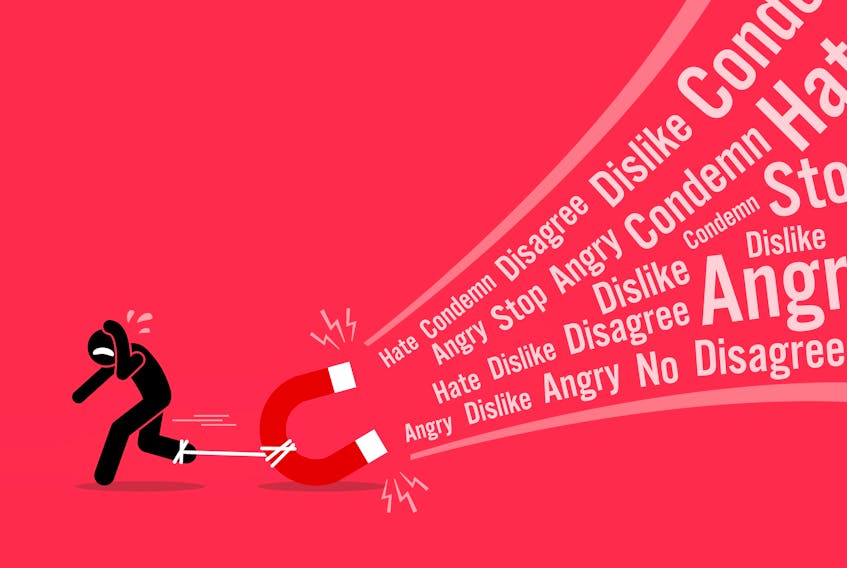I wonder sometimes: is it you?
Are you the one I have to watch out for?
Or are you really just asking a simple, honest question?

Years ago, when I worked for CBC as a reporter, I used to hate getting asked questions at social events by people I didn’t know well. “What do you think of the government?” they’d ask, and I’d prevaricate, knowing that, as part of my job, I was supposed to be as impartial as possible. Just the facts, and no hint of opinion.
(It was — and is — impossible. No one is truly impartial. Everyone has opinions or biases — the best thing anyone can do is to try and recognize what those biases might be, and try to mitigate them.)
Then, as the editor of the St. John’s Telegram, I watched my words a different way, because I often spoke for the paper as well as for myself.
For years, though, I’ve been in the opinion columnist business, able to take the stands I believed in, and argue for them. I used to say that, compared to the strictures of reporting, opinion writing was bliss because it was so freeing; ask me what I think, and I can tell you. Anytime, anywhere.
But it’s not what it was, even a few years ago.
Because the thought police truly are all around us now, and with the internet, they have the means to spread permanent damage in seconds.
I mean, it’s one thing if someone calls you up — as someone once did to me — to advise me that soon, all of the media would be lined up against a wall and shot. You know where that person stands pretty clearly, and can be glad that the ownership of weapons isn’t a constitutional right in this country.
It’s something else again when you’re dealing with someone, and you don’t know where they stand. Also, when you don’t know how willing they are to weaponize public comment through social media.
At least in the States, when it’s someone with a “concealed carry” licence, you get a hint of a holster on the hip or a strange shape to the ankle that could be either a gun or a prison electronic monitoring anklet.
It means losing trust in your fellow citizens; there’s always been gossip, but now it doesn’t spread ear-to-ear — it spreads network-to-network.
With someone packing prejudice or an attitude, there’s nothing to give you any warning.
People complain about “gotcha” journalism, and they have a point.
But “gotcha” exists far more broadly now, and that means anyone with an iota of a public presence has to be thinking all the time. They have to stop and think about every word, and how that word might be used or misused; everything’s become an interview.
Everything is fodder to be implicitly or explicitly outed on social media, simply so someone can score a few of those much-needed “likes” or “follows.”
It means losing trust in your fellow citizens; there’s always been gossip, but now it doesn’t spread ear-to-ear — it spreads network-to-network.
You may not even realize the extent to which you’ve lost that ability to trust, how hamstrung you actually are, until you’re lucky enough to sit down some night with friends you can talk to, debate points you don’t agree on, and yet be able to leave at the end of the night without a grudge.
Second-guessing everything and everyone is no fun. But careers have come to depend on it.
Think the best of people, my mother used to say. I can’t.
I see the worst of people far too often.
I still say what I mean, loud and clear, when I say it. But more often all the time, away from my job, I see plenty of reasons to say nothing at all.
That, my friends, is what the beginning of the death of free speech looks like.
Russell Wangersky’s column appears in 39 SaltWire newspapers and websites in Atlantic Canada. He can be reached at [email protected] — Twitter: @wangersky.
•••
Recent columns by this author
Russell Wangersky: First World fisheries problems
Russell Wangersky: Consider the messenger as well as the message









